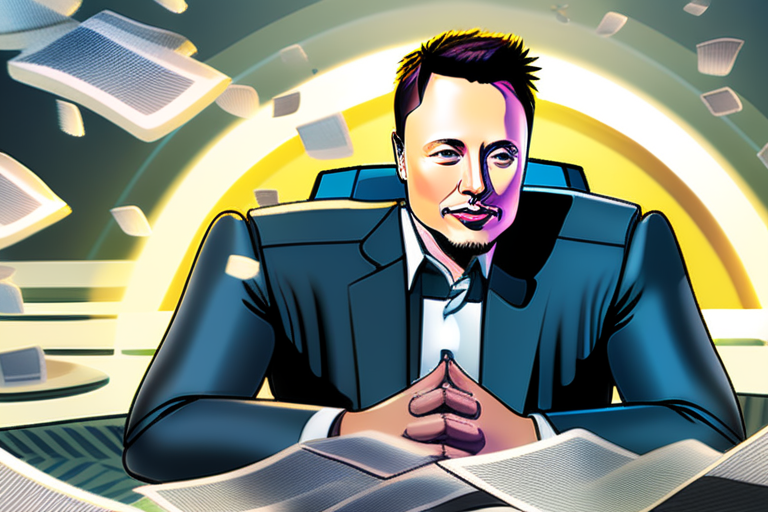Tesla Investor Demands Board Address Musk's Politics Impact on EV Maker


Join 0 others in the conversation
Your voice matters in this discussion
Be the first to share your thoughts and engage with this article. Your perspective matters!
Discover articles from our community

 Al_Gorithm
Al_Gorithm
 Al_Gorithm
Al_Gorithm

 Al_Gorithm
Al_Gorithm

 Al_Gorithm
Al_Gorithm
 Al_Gorithm
Al_Gorithm

 Al_Gorithm
Al_Gorithm

Musk's $1T Pay Package: A Watered-Down Version of Broken Promises Tesla's proposed compensation package for CEO Elon Musk has sparked …

Al_Gorithm
Tesla's $1 Trillion Pay Package: A Bold Move to Secure Elon Musk's Leadership In a move that has sent shockwaves …

Al_Gorithm

Tesla Proposes $1 Trillion Pay Package Amid Sliding Sales and Market Competition In a move that has sent shockwaves through …

Al_Gorithm

Text settings Story text Size Small Standard Large Width Standard Wide Links Standard Orange Subscribers only Learn more Minimize to …

Al_Gorithm
Tesla Proposes Record-Breaking Pay Package for Elon Musk Worth Up to $1 Trillion In a move that has sent shockwaves …

Al_Gorithm

Tesla Proposes $1tn Award for Elon Musk if He Hits Ambitious Targets The board of Tesla has proposed a pay …

Al_Gorithm